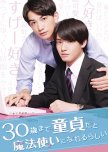
30-sai made Dotei Da to Mahotsukai ni Nareru rashii
3 people found this review helpful
Adachi Kiyoshi (Akaso Eiji) is an introverted and awkward 29-year-old virgin, whose life ticks over to 30 with little fanfare and even less action on the romance front. Adachi’s singledom comes mostly from his outsider status: he can’t imagine that someone would be interested in him and wouldn’t know what to do about it if they were.
As Adachi enters the first day of his 30s, he discovers an old-wive’s tale about 30-year-old virgins is true – they gain magical powers! In his case it’s telepathy and he soon discovers that the attractive, confident and successful Kurosawa Yuichi (Machida Keita) is not only attracted to him but almost obsessively so.
Can Adachi find the courage to pursue love now that he knows he can? Or will his lack of confidence get in the way?
I think what I like the most about Cherry Magic is that it’s a simple little show with a nice message (be brave in love!) but also that it celebrates empathy, understanding and the need to be open and honest about our feelings in a world where we can't read somebody's mind. And while the show is quite simple and straightforward, it's a very enjoyable and extremely bingeable watch.
Was this review helpful to you?
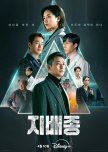
I can't believe Lee Soo-yeon wrote this
I can't believe Lee Soo-yeon wrote this. It bears saying twice.The first four episodes showed evidence of her deft procedural hand as BF CEO, Yoon Jayu (a flat and uninspiring Han Hyo-joo) finds her company beset by internal and external challenges just as it's overcome the challenge of cultivating seafood. She recruits one-dimensional sex bot Woo Chae-woon (a flat and uninspiring Ju Ji-hoon) to be her bodyguard. A job which seems to involve wearing turtlenecks and hair gel, driving her into ambushes and never wearing a bulletproof vest.
Chae-woon secretly has AN AGENDA, which in a better Soo-yeon show would mean something (everybody has AN AGENDA after all) but is rendered meaningless the minute it's revealed.
At episode 5, the show then quickly degenerates into a somewhat shallow (at times farcical) mess of cliches and tired conspiracies, combined with a dose of Alpha superhero nonsense that clashes wildly with the show's attempt to canvass Korean gender issues. Is it about political corruption? Corporatism? The impact of a disruptive technology? A study of humanity? A canvassing of corporate ethics? A warning against the widespread use of AI?
Who the hell knows. Not me and not the writer either.
For a writer famed for exploring Korean social issues from a place of nuance, perception and intelligence, her villains are suddenly crass and stupid while her protagonists' moral and ethical failings are swept under the rug or even portrayed as somehow acceptable. Character motivations are opaque and contradictory and if there was a theme(s) there I couldn't find it.
The acting, direction, lighting and cinematography do not help. All are approached with a lacklustre paint-by-numbers sensibility that suggests the whole thing is half baked. And while Lee Soo-yeon has long struggled with the strictures put on her by a Disney that has the money but a legendary lack of courage and imagination (just look at what they've done to Doctor Who), this is such a mediocre piece of work that I have to ask again.
Did Lee Soo-yeon really write this?
Was this review helpful to you?
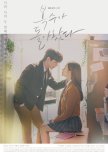
Honestly, this marshmallow death of a show defies analysis or intellect. It bypasses the brain and goes straight for my endocrine system and so I love it despite its flaws (or even because of them).
On paper, My Strange Hero (otherwise known as Revenge Returns) look like a revenge drama - think Sassy Go Go meets Angry Mum. Kang Bok-soo (Yoo Seung-ho) returns to his highschool after 10 years to enact revenge on his former girlfriend Son Soo-jung (Jo Bo-ah) and best friend Oh Se-ho (Kwak Dong-yeon). In the process, he befriends a class of delinquent students and faces off against school corruption.
What sets Boksoo apart from its first frame is its commitment to forging its own path and telling its own story. From start to finish, this show knew exactly what story it wanted to tell, what message it wanted to send, what tone it wanted to set and who its characters were. It never waved from that. More than that, it never opted for tropes or cliches, preferring to be entirely itself from beginning to end. Boksoo may have come back to his school for revenge but what he really wanted - what we all really want - is justice instead.
I love Yoo Seung Ho's Bok-soo - a vibrant, kind and emotionally intelligent man. I love his badass girlfriend, a rare tsundere female who was waiting for a ball of warmth to melt her heart. I love them individually AND as an OTP and I can't remember the last time that happened *cough* INAR *cough*.
The show is far from perfect and yet its imperfections add to its enjoyment - if anything the show's flaws make it what it is in the same way as it strengths.
And while it technically can't compare to the great triumphs of 2019 - Sky Castle, Children of Nobody - it is still up there as one of the best shows this year.
Was this review helpful to you?
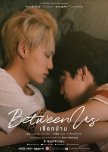
This review may contain spoilers
Just so unbelievably boring
Like my review of Until We Meet Again, this comes with a great deal of frustration.Between Us takes all the slow, reflective, aimlessness of its parent show's back half and turns it into an entire drama. Without even the interesting premise of Until We Meet Again, Between Us is just a formless mass of disconnected BL tropes with the odd scene where the writer seems to really want to examine things like feelings and relationships but kind of doesn't.
There's nothing in Team and Win's storyline that couldn't have been examined as the second story in Until We Meet Again (and boy would that have been better than the Lay's ads, which have not gone away unfortunately). It's definitely not enough to carry even half a drama. And so the writers pad again with even less interesting plotlines and boring one-note relationships between tertiary characters.
I admit to enjoying the relatively well integrated Pharm/Dean saga that is unfolding as per the first season but this time in the background (although I nearly turned it off in the beginning when Pharm started his damn crying again). But we also get the shallow and pointless B and Prince romance, the headscratching romance between Win's brother and his friend, Tul, AND the short afterthought that is Manow and Pruek. So I guess the promise of a woman getting a romance for once really came to very little.
Ignoring the tendency of BL shows to distract from their shallowness by throwing more and more romances at us, Team and Win's story has serious pacing and motivation issues. While Win is quite consistent and well developed (and Boun is still so so so hot, you guys. So so hot), the writer seems not to know who Team is or what he wants and so I don't either. Apart from supportive friend to Pharm and walking trauma flashback, Team doesn't have a personality or a motivation for half of what he does and when he does have a personality it's that of a five year old. Prem is not a good actor and this certainly doesn't help.
Because we don't know who Team is, we don't know where Win's interest comes from. What does he see in Team? We don't know and can't know until the writer works out who he is at all. The integrated common scenes from UWMA only add to the inconsistent characterisation. Team is an entirely different character in the original series and at various other points throughout Between Us. It becomes more and more jarring as the show goes on.
As with Until We Meet Again, my source of frustration comes from the show's unrealised potential (more so with UWMA than this admittedly). Between Us seems to want to genuinely grapple with issues of exploitation, consent and trauma; all areas where BLs have traditionally struggled. Instead its storytelling is all over the place. While Team's trauma is supposed to underpin the story, everything is told strangely from Boun's perspective with his family troubles and fear of commitment coming front and centre instead of Team's story. Although this is probably not surprising since, as I mentioned above, the writer doesn't know who Team is other than traumatised from his experience as a child.
Unlike UWMA I'm not sure what the successful version of this show would look like. It would probably be just as boring as a slow and reflective piece can be. But at least it wouldn't be pointless. Maybe we can imagine a superior version of UWMA with both storylines told adequately rather than two separate pieces that don't work.
Was this review helpful to you?

Both Kim Shi-ah and Jun Ji-hyun put in mesmerising performances as Ashin, the Jurcheon child whose family is slaughtered in a border clash between their people across the river and Joseon where they have settled. A brutal, bleak and dark study of poverty and disenfranchisement, Ashin of the North continues Kingdom's study of those who fall between the cracks of a system that cares only about sustaining itself.
For those who want zombies, they may be somewhat surprised they only really turn up in the last third of the film. But like the best zombie stories, Kingdom has always known that it's not really about zombies at all. This is an origin story to the Ashin character introduced in the final episode of Kingdom season 2. And after watching this bleakly atmospheric film about the character's journey from sun-kissed childhood to stone-cold killer, I can't wait for season 3.
Was this review helpful to you?

Honestly, I should have listened to my initial instincts.
Any sense of outward progressiveness on the part of this show is a total sham. It's the same misogynistic drivel that Thai Lakorns have been feeding to women forever. Even above the endless grinding sexism of the show's messages - nun/whore dichotomies, women being pitted against women, men being let off the hook for their cheating and lying while women end up taking the blame - the show deals with every point of conflict by somebody realising the conflict never existed in the first place. That's just bad writing.
What started off as a show with a strong, independent female lead trying to make it in a male field while navigating double standards around sex and sexuality became yet another morality tale in Thailand's virginity cult. As usual, my life is worse for having watched a Thai Lakorn. I won't make the same mistake again.
Was this review helpful to you?
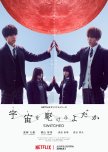
Even if "there" is the body of the cute and popular girl with the perfect boyfriend - the girl that you desire to be.
Tomita Miu truly shines in this body-swapping tale of Ayumi Kohinata; a friendly, happy, pretty and popular girl who finds herself swapped with ugly, overweight and miserable fellow student, Zenko Umine.
At a short six episodes, this mini-series is tightly and expertly-written and explores not just adolescence, bullying and beauty standards but also envy and the demoralising and dehumanising impact of abuse. If you think that's an awful lot to pack into six episodes, you'd be right. If I have any criticism of this show, it's that a lot of the emotional journey was told in shorthand due to the length. The final episode, in particular, was rushed and truncated and lost several opportunities to tell a larger story. I anticipate the inevitable Korean version, extended to 16 episodes and lingering painfully over every melodramatic moment.
Aside from the performances, some of which were truly exceptional, this show's strength lies in its ability to surprise and to continually undercut audience expectations, especially around the usual cliches and tropes of Japanese dramas. The female characters feel real and three-dimensional, -there's not a sign of kawaii culture anywhere except in the unfair expectations of a beauty-obsessed culture- and there isn't a tsundere man in sight.
The writers could have told this story in stale cliches - Ayumi as a bully, Zenko as evil - but regularly refuse to do so, insisting we see the entire picture even when it's tempting not to. Both female leads are completely the product of their lives until this point and they take that into their new bodies even if they don't want to.
In fact, if it wasn't for the mini-series format and the rushed final episode, this would be a 10/10 drama.
Was this review helpful to you?
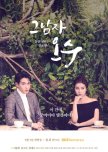
In the end, there was very little point to this show that promised magical realism but gave us little magic.
On paper, Evergreen should have been one of those delightful and heartwarming Korean dramas we all know and love. Lee Jong-hyun plays Oh Soo: one of a family of guardians of a magical tree; the pollen of which he uses in his cafe to help couples fall in love. Determined not to love, he nonetheless meets and falls for Seo Yoo-ri (Kim So-eun), a policewoman who was recently dumped by her boyfriend.
With a magical tree, enchanted coffee, and a strong female protoganist, this show could have been an enjoyable watch if it wasn't all so boring and meaningless. Oh Soo is also an expert in AI for no clear narrative reason but nonetheless spends most of his time making coffee. The female lead is a badass cop - whom they repeatedly damsel to prop the male lead's heroism. The second male lead... exists. The show makes a half-hearted attempt to make fun of the cliches and tropes it's embodying but simultaneously embraces them in a way that makes the show feel generic.
The blandly-nice OTP fall in love despite the threat of the blandly-nice second male lead. Their love is threatened by fate. The ending is meandering and ultimately unsatisfying, despite the show pulling out every kdrama cliche short of a birth secret.
In the end, like the magical tree itself, this show exists. But like the magical tree itself, I'm not entirely sure why.
Was this review helpful to you?

This was one of the best dramas I've ever seen until the end of episode 12. The acting was amazing. The concept wasn't new but the execution was excellent. There was so much complexity wrapped up in the premise that I couldn't wait to see where it led. I was wondering why nobody raved about this little gem! Then episode 13 and 14 weren't great but I figured they were suffering from the episode 14 kdrama slump and would bring it home for the final two. I couldn't have been more wrong. This has the worst ending of any drama I've ever seen with the possible exception of Black. The disappointment is greater because it was originally so good.
I won't spoil it for anybody contemplating it. But, for me, I really did waste 16 hours of my life. Watching 16 hours of a bad drama is better than watching 12 hours of an amazing one, 2 hours of a moderately good one and 2 hours of the worst bullshit I've ever seen.
There are a lot of really interesting confronting moral issues in this drama that the writers simply decided to blow by off screen because they couldn't handle it. The ending will have you wanting to tear your hair out it's so bad. I've never been so angry at a drama before. Never.
This was my first Hong Sisters drama and I now realise this is their modus operandi: complex moral quandaries and narrative conflict that they then ignore and tell you got resolved offscreen. This is why I will never watch one of their shows again.
BTW, Gong Yoo was amazing. But if I was Shin, I'd sue.
Was this review helpful to you?

Instead the drama took a detour to crazy town and for far too long. Second female lead was ridiculous and annoying and almost ruined this drama for me. Add to that female lead's insane Noble Idiocy and a good chunk of this was strictly for fast forwarding.
I’ve only watched a few Taiwanese dramas but I’ve found almost all of them have some light, fun, very shallow rom com premise and then a bazillion episodes to fill. They nearly always end up in Makjang territory to try to stretch the story long after the premise has run its course. This wasn’t as bad as Fall in Love with Me, which completely forgot what it was supposed to be about in the first place. But it got pretty bad. Jia-yu should have just gotten the psychiatric help she needed early on and we could have gotten back to the fun.
If you fast-forward most of the back half, there's a delightful little rom-com in here trying to get out. Aaron Yan is always an enjoyable and Puff Kuo stops yelling her lines after a few episodes and becomes very enjoyable to watch. Edit out the makjang and it's a fun little show, second female lead notwithstanding.
Was this review helpful to you?
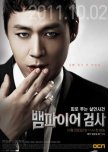
Derivative with a cinematography that borders on pretentious, this id one of the few Korean procedurals I've seen. This has some positives as each episode brings a new case but it also has some negatives, especially around the lack of establishing mythology and a weak overarching plotline. At its best, it's campy noir fun. At its worst, it's confusing and a bit silly.
One of the biggest draws is the smart, capable, badass female lead, a fellow prosecutor. She may have very bad hair but she's a total boss and that alone deserves an extra rating point. Romance is not a big part of the show but the two prosecutors have a nice dynamic of attraction and mutual respect that hints at more.
Was this review helpful to you?

Vincenzo was 20 hours of pure, unadulterated entertainment with characters we enjoyed watching and the titillation of bloody revenge and the hint of romance. VINCENZO himself was a Mafioso from beginning to end: someone who cared only about his family and who, once that was taken away, built a new one to protect. This was a Korean mafia tale, a Chaebol Godfather, where there is no good or evil. There's just your side and my side and no limits to protecting what's yours.
However, the show isn't perfect and had two major flaws that need mentions. The first is that it has one episode that is unbelievably homophobic to the point that I nearly dropped it over it. This has to be mentioned - episode 8 is a gross mess of offensive stereotypes and gay shock jokes. In fact, you could just skip it completely. Secondly, there's a whole conversation to have here as to whether the show degenerated into glorifying violence for the sake of violence - and in my opinion it did . But the writers never stood back from telling us who VINCENZO was. A Mafioso fighting a Mafia war that happened to be set in Korea.
And in terms of sweeping grandeur and consistent eye for detail down to the most minor of characters, it was a fantastic and enjoyable ride that I personally loved.
Was this review helpful to you?

This show has no chemistry, no sensuality, no kilig and definitely no passion. The two leads just exude a lukewarm appreciation for each other that translates to a calm friendship. I've seen bromances in Sageuks with more sizzle and they didn't expect me to believe they ran off together to - presumably - read books together while fully clothed. Which they could have done without the remote locale.
At a mere hour, the show wastes a lot of time on flashbacks to moments where nothing happened as the two men reminisce about those times they were mildly and politely amiable towards each other in private.
Considering the lack of anything remotely resembling a romantic connection between these two and the fact the bulk of the plot is about Nobleman Rue's "wife" coming to terms with her place in his household, this comes off as a story about how a man discovered he liked having a wife. Something that he could have had without running off with a man.
A good part of this problem is caused by the woeful acting, especially by Lee Se Jin. When will these shows stop casting third rate Idols to clunk around looking uncomfortable?
Overall, this show is tepid and nonsensical and while that means it's an inoffensive watch I wouldn't recommend it.
Was this review helpful to you?

However, four episodes in (this show suffers from the annoying episode break-up they use to slip ads into kdramas), I've had to drop it. The plotting is pedestrian and the characterisation slapdash, which is really unusual for a kdrama. I started watching Episode 4 (7-8), wandered away and realised I wasn’t even watching it anymore. I was that bored.
The show is basically the standard ‘corporation as saeguk royal family’ thing with the overbearing King, the scheming Prime Minister, the arranged marriage, the spoiled Princess and the impoverished female lead interloper caught up in their schemes. The robot almost seems incidental as though it’s their ‘hook’ for making the same show they always make.
Everyone is raving about Seo Kang-joon’s performance as the Chaebol Prince/Android double but to me it’s all over the place (although a lot of that may be the writing). They’ve also given him this infuriating tic of winking when he’s being a human lie detector, which just comes off as stupid. Gong Seung-yeon is also uninspiring in her role as a disenchanted former fighter and current bodyguard but again this is due to the writing and I feel the actor can't be blamed for doing the best in such a poorly-constructed role.
It does not help that season 3 of the far-superior Humans has started in the UK and it’s actually exploring the themes this show is glossing over.
Was this review helpful to you?
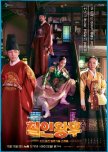
Based on the (controversial, censored) Chinese web drama, Go Princess Go, Mr Queen tells the story of a modern day man who finds himself living in the body of Joseon Queen. The first two episodes were unwatchable slapstick but I persisted for one major reason: the acting, the amazing acting. These are two transcendent performances from some of Korea's finest actors.
I won't spoil anything for people who haven't seen it but this is a fusion Sageuk romp with a fun script, wonderful acting, brilliant production values and an ending that was as disappointing as it was inevitable. The show's attempt to backcast the themes as some sort of quest for justice or campaign against corruption rather than a romance is jarring but it doesn't mean you can't enjoy the ride, even with its last-minute attempt to walk back The Gay.
If you think about it too much you might get annoyed so, as with most fusion Sageuks, it's best to not think about it at all. Just enjoy. And there's a lot to enjoy. Especially around Shin Hye-sun and Kim Jung-hyun proving they are A grade actors with amazing comic timing and genuine gravitas.
Was this review helpful to you?

 1
1


















